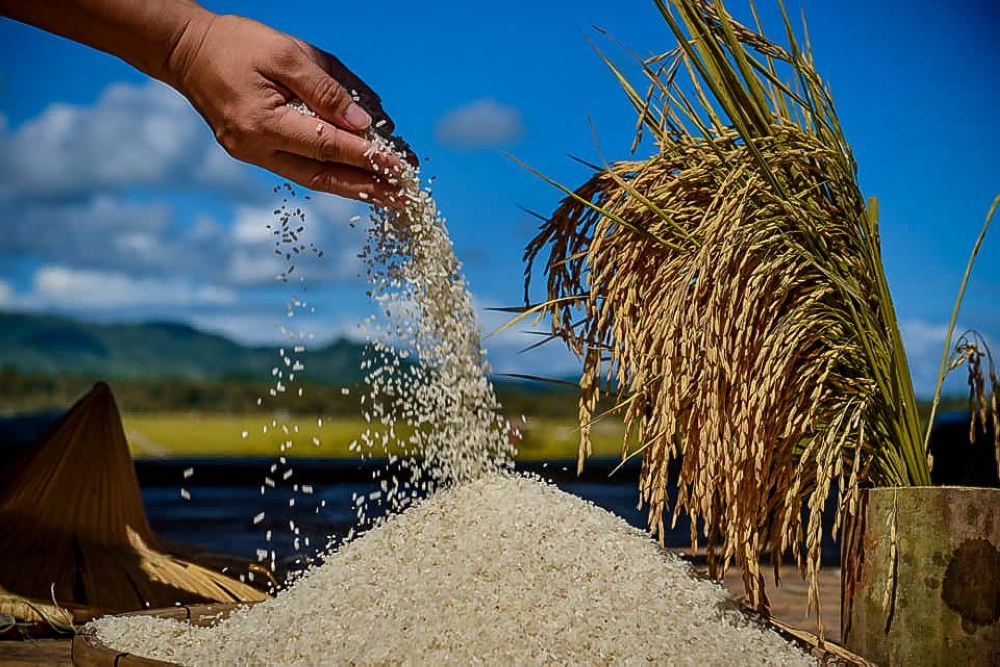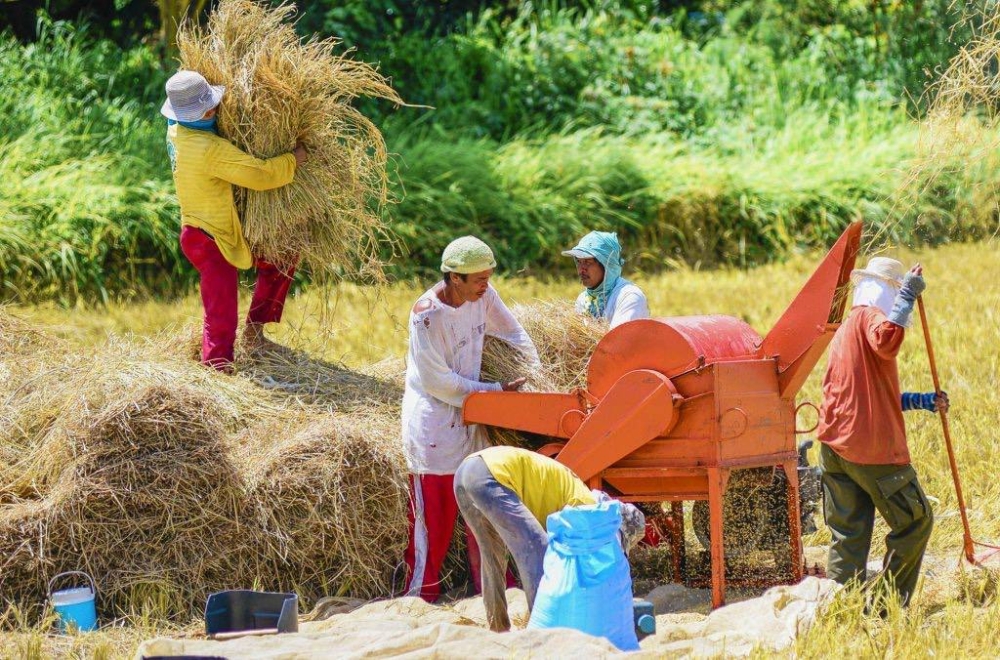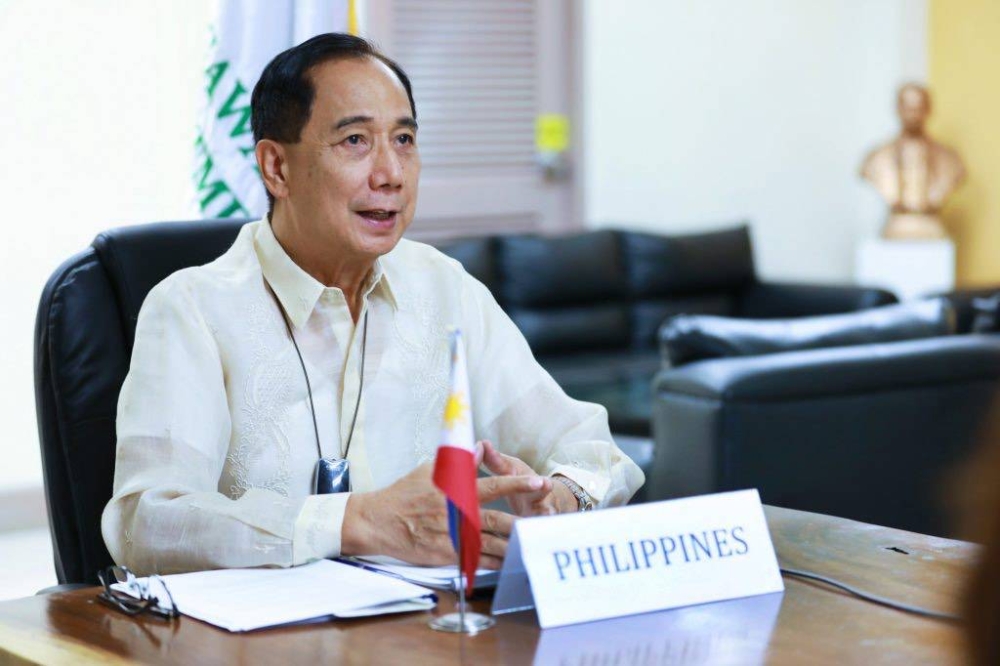For the agriculture sector, 2020 was one of the most challenging years. As nations grappled with the coronavirus disease 2019 (Covid-19) pandemic, the Philippines faced massive challenges on top of the global health concern.
The nation's agriculture sector reeled from the effects of calamities such as typhoons and volcanic eruption, pest infestations and infectious animal diseases. These resulted in falling prices of staples and slashed income for local farmers and fisherfolk.
Despite these challenges, the Agriculture department aggressively stepped up its efforts to stay true to its commitment to make the Philippines a food-secure and resilient nation.
Thus, agriculture became the best performing sector in the country's economy in 2020.
In January, President Rodrigo Duterte cited the DA for successfully ensuring that the Filipino people will have access to affordable and healthy food, dousing fears of a food shortage at the height of enhanced community quarantines nationwide.
The farm and fisheries sectors endured birthing pains with the rollout of Republic Act 11203 or the "Rice Tarrification Law," the outbreak of African swine fever (ASF) as well as the avian influenza or bird flu.
To address these challenges, the DA, under the leadership of Agriculture Secretary William Dar, pushed various initiatives, including the Plant, Plant, Plant program, Kadiwa ni Ani at Kita and Urban Agriculture program, among others.

Following the imposition of nationwide community quarantine due to the Covid-19 pandemic in March 2020, the agriculture department immediately implemented its Food Resiliency Action Plan to ensure stable and affordable food supply in Metro Manila and in nearby areas.
The DA also imposed an expanded list of suggested retail prices for agri-fishery commodities to prevent the spike in prices of such goods during the quarantine periods.
Other initiatives of the DA that aim to ensure food security included providing additional palay (unmilled rice) procurement funds for the National Food Authority, expanded SURE Aid and Recovery project, and other resiliency projects on various commodities such as rice, corn, coconut, poultry, livestock, vegetables and fisheries.
Moreover, the DA eyed portions of vast ancestral lands across the Philippines to be transformed into food production areas.
In 2021, it set a target of 2.5-percent growth for the country's agriculture sector with interventions focused on increasing production and agribusiness through farm consolidation, modernization and industrialization.
For Secretary Dar, the way to ensure food security for all Filipinos is through establishing transformative, sustainable and inclusive food systems in the Philippines.
During the recent two-day Philippine National Food Systems Dialogue (NFSD), the country's agriculture and fishery industry stakeholders, top government officials, and heads of Philippine and United Nations (UN) developmental organizations expressed support to the DA's call for a unified and synergistic action to transform Philippine food systems and meet the UN sustainable development goals (SDGs) by 2030.
To do this, Dar said the country will need to take a whole-of-society approach to drive "transformative change and build healthy, sustainable, technology-based and inclusive" food systems in the Philippines.
Building sustainable food systems
"Food system is not merely confined to production, but also covers a complex web of activities. This requires synergy among sectors to transform the country's food systems to attain the SDGs nine years from now," Dar said.
The NSFD serves as the Philippines' preparation for the UN Food Systems Summit (UNFSS) in September this year.
"This will awaken the world with the fact that we all must work together to transform the way the world produces, consumes and thinks about food. A solution summit that will require everyone to take action to transform the world's food systems," said Assistant Secretary Agnes Catherine Miranda, vice chairman of the Philippine NFSD steering committee.

Part of the dialogue's output is the DA's draft statement on the Philippines' pathways for the UNFSS, reiterating the country's commitment to achieve SDG 1 (end poverty) and SDG 2 (zero hunger) by 2030. It also highlights the Duterte administration's initiatives to eradicate food insecurity and empowerment of those engaged in various food systems activities.
Guztavo Gonzalez, UN resident coordinator in the Philippines, said the Duterte administration's work, particularly of the Inter-agency Task Force on Zero Hunger, has enhanced partnerships against hunger and poverty, focusing on the strengthening of community procurement by providing support from empowering and consolidating agricultural production to providing market opportunities for nutritious food by linking them to government institutions such as day-care centers, schools and hospitals.
He also commended efforts of legislators to address issues such as malnutrition and obesity and to ensure the quality of food production.
"Actions, more than ever, need to be holistic, multidimensional, transformative and ambitious - not just to recover from Covid-19, but to regain ground lost on the sustainable development goals," Gustavo said.
Dr. David Nabarro, senior advisor to the UNFSS dialogues, said, "You've got the policies clearly laid out, but the challenge is always the implementation. That is why governance is critical in helping work this through."
"Whatever the governance that is used, it should be one that includes and welcomes all different stakeholders. So that when there's commitment, there is also follow-through on the outputs to make sure that the process is fully implemented," he added.
Nabarro recommended that the country continue its research and development but adapt it to local conditions and realities; adopt a finance-based forecasting or an early warning system to act early when there is a crisis; institutionalize disaster risk reduction and management at all levels and establish climate information service; and invest in sound infrastructure.
For Dar, "the call of the times is to have food systems that are sustainable, equitable and resilient for us to feed our growing population now and in the future."
"When our food systems fail, the resulting disorder threatens our health, education and economy as well as peace and security," he said.










